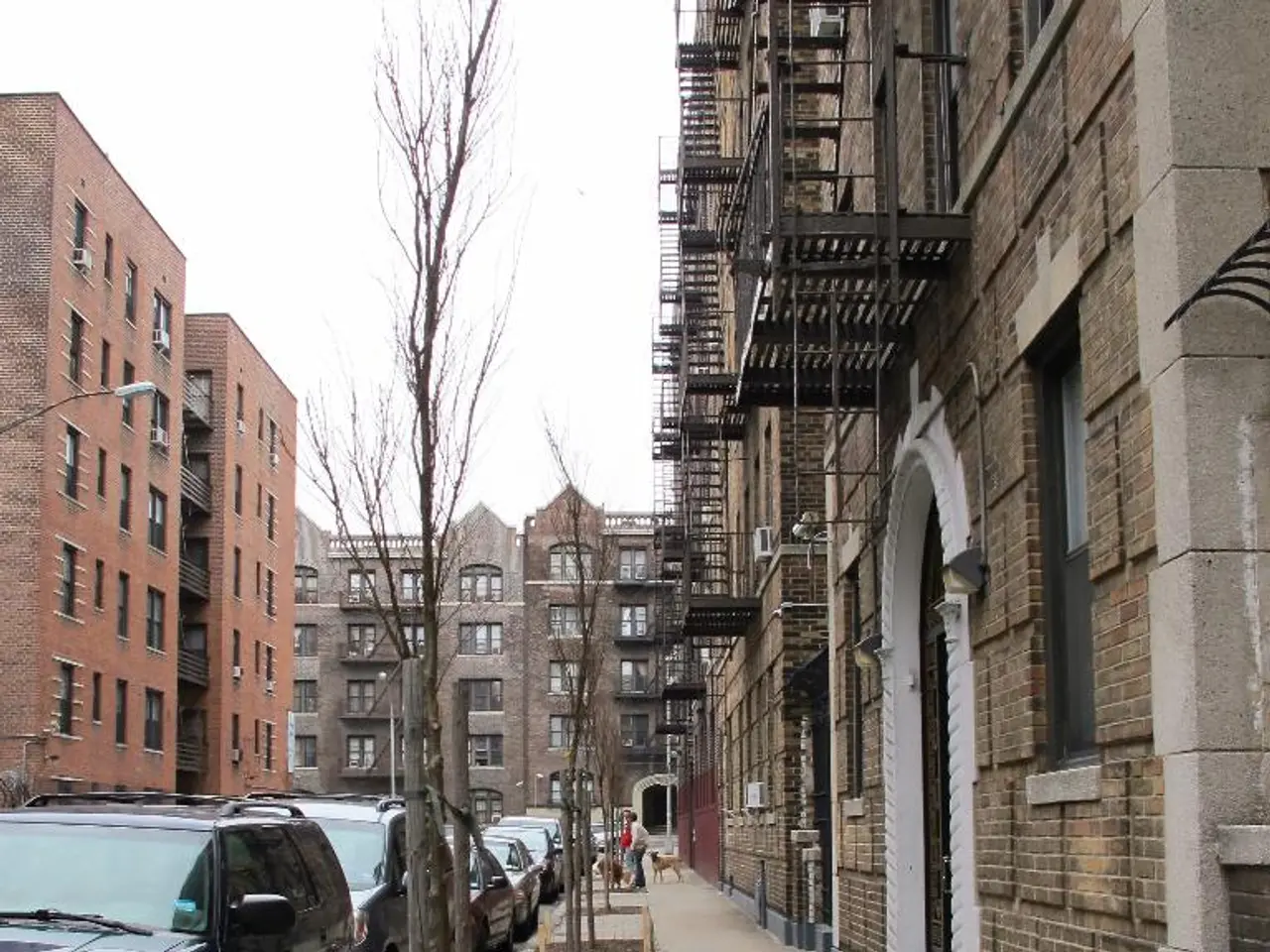Access Denied: Lack of Prescription for the Appropriate Medicine
In the political landscape of Germany, the current Black-Red coalition government, comprising the CDU/CSU and SPD, is confronting the rise of the far-right Alternative für Deutschland (AfD) party with a comprehensive strategy.
Security and Surveillance Measures
The Federal Office for the Protection of the Constitution (BfV) officially classified the AfD as a "confirmed right-wing extremist endeavor" in May 2025. This label enables intensified monitoring of the party, potential restrictions on public funding, and state-level initiatives to bar AfD members from public service jobs such as civil servants, police, teachers, and soldiers.
Legal and Political Containment
The government, led by Chancellor Olaf Scholz (SPD), supports a careful approach to possible banning or severe restrictions on the AfD, emphasizing a detailed judicial process rather than rapid moves. Meanwhile, several federal states are exploring employment bans for AfD members in sensitive positions to reduce the party’s institutional influence.
Public Messaging and Political Strategy
The ruling parties maintain a firm stance against the AfD’s right-wing narrative by addressing immigration and extremism issues more proactively. This includes continued commitments to social policies, such as rising minimum wage and wealth tax proposals by the SPD, to address economic grievances that partly fuel right-wing support.
Security Investments and Counter-Extremism
The coalition is also engaged in efforts to curb far-right extremist violence, which surged by 23% in 2024, partly associated with AfD-linked individuals. Increasing defense spending and security measures are seen as part of a broader strategy to maintain social stability and counter extremist threats.
Political Positioning Against Migration Extremism
The government has acknowledged the long-term challenge posed by migration policies linked historically to Merkel’s era, which partly contributed to AfD’s rise. Current strategies emphasize controlled immigration policies combined with integration efforts to undercut the AfD’s anti-immigration platform.
While the center, traditionally associated with pragmatism, effectiveness, and security, is wobbling, the Black-Red government is determined to address the AfD threat through intensified constitutional protection measures, limiting AfD’s influence in public institutions, judicial oversight, socio-economic policies to undercut its base, and stronger security responses to right-wing extremism. The government's cautious legal processes aim to avoid hasty political radicalization.
However, the AfD is attempting to split the Union with culture war campaigns, and the SPD's self-presentation as a bulwark against fascism may obscure its lack of a clear strategy against the right. The only current idea to counter the AfD is the Dobrindt model, which involves adopting hard anti-immigration policies.
The Merz government, in office for 100 days, has yet to develop counter-strategies against the right, with Merz and Frei standing for the culturally conservative re-enactment of the republic without gender stars and "refugees welcome." The SPD is playing a somewhat timid role as the guardian of social welfare in the current government. The failure of the Chancellery in the electricity tax affair occurred under the current government, and the Chancellor and his close associates, Jens Spahn, Carsten Linnemann, and Thorsten Frei, have little government experience. The paralyzing debt brake has been largely resolved by the current government.
- The rise of the far-right party, Alternative für Deutschland (AfD), in the political landscape of Germany has been met with a comprehensive strategy by the current Black-Red coalition government.
- In response to AfD's extremist stance, the government has prioritized monitoring and potential restrictions on public funding for the party, as well as state-level initiatives to bar AfD members from sensitive positions.
- The government is also emphasizing a proactive approach to immigration and extremism issues, with commitments to social policies like increasing minimum wage and wealth tax proposals.
- Recognizing the rise of far-right extremist violence, the government is making security investments and implementing stronger measures to counter such threats, while addressing migration policies and integration efforts to undercut the AfD's anti-immigration platform.
- Moving forward, the government is cautiously weighing legal processes and countering the AfD's culture war campaigns, while the SPD aims to avoid hasty political radicalization.
- Controversy surrounds the current government, as the SPD's role as a guardian of social welfare is questioned, and the lack of counter-strategies against the right is evident in the Merz government's initial 100 days in office.






